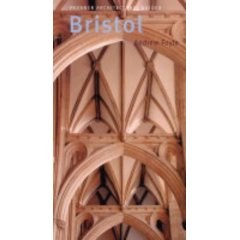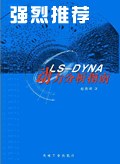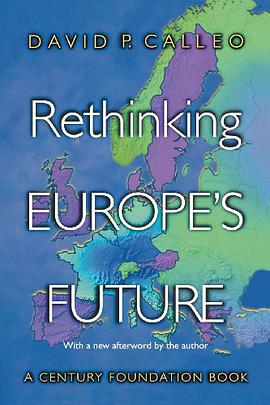

具体描述
Reviewer: M. Matthews "mikematt101" (Bristol, England)
Andrew Foyle's Bristol is an in-depth guide to the architecture of "England's historic second port". In his introduction, Foyle quotes Sir John Summerson: "If I had to show a foreigner one English city and one only, to give him a balanced idea of English architecture, I should take him to Bristol, which has developed in all directions, and where nearly everything has happened". Foyle adds that "Bristol's uniqueness lies in the range and extraordinary juxtaposition of its buildings, constantly surprising with their richness of texture". Unlike the serene uniform beauty of neighbouring Bath, Bristol is a city where architecture of different periods and styles sit side-by-side. It is also a city that suffered enormously at the hands of brain-dead post-war developers who had no qualms about erecting grey concrete monstrosities next to attractive and important 17th and 18th century buildings.
Bristol is a fascinating account of the city's architectural history. It covers the city's major buildings (the Cathedral, St Mary Redcliffe, the Suspension Bridge, etc) and its churches before going on to describe other buildings in a series of walks covering areas such as the City Centre, Hotwells, Clifton and Kingsdown. The book ends with brief descriptions of other important sites on the fringes of the city, such as Blaise, Arno's Vale and Tyntesfield.
As a relative newcomer to architectural history, and as a native of Bristol, I thoroughly enjoyed the book, although I do have a few minor quibbles. Firstly I can't really see it working as a walking companion as its too big and the spine is far too stiff. It would've worked better if each section had been published individually as walking guides. Secondly I found the glossary at the back somewhat lacking and often found it hard to envisage a building purely from Foyle's description. As a result Bristol probably would not appeal to someone looking for an accessible and undemanding guide to the city's buildings. I also thought that some of Foyle's descriptions were rather pompous, such as his description of the design of Dorset House in Litfield Place as "perverse" simply because it has a 1:2:3:2:1 arrangement of bays! Although I loved his scathing comments about the post-war developments, such as the Students' Union Building on Queen's Road ("perhaps Clifton's most bruising post-war intrusion") and the "windswept canyons" of Lewins Mead and Rupert Street.
One thing I particularly enjoyed about Bristol was discovering its colourful cast of characters - the architects who created the city, most of whom I had not previously heard of. The Paty family, Sir George Oatley, Charles Holden, Richard Shackleton Pope, Charles Dyer, George Edmund Street, Charles Underwood, George Tully and, of course, Isambard Kingdom Brunel. Without these and other men, the Bristol we see around us today would look very different.
作者简介
目录信息
读后感
评分
评分
评分
评分
用户评价
初翻开这本厚厚的书卷,我原本只是抱着打发时间的随意心态,没想到却被一股强大的、近乎魔性的吸引力牢牢锁住。它不像那些直白的畅销小说那样追求快速的感官刺激,而是像一位技艺高超的织工,慢慢地将无数细小的线头编织成一张巨大而精密的网。那些关于环境、关于人性深处的探讨,是如此的隐晦,却又如此的振聋发聩。我发现自己常常需要停下来,合上书本,走到窗边,努力消化刚刚读到的那些句子。作者似乎对语言有着近乎偏执的控制欲,每一个用词都经过了千锤百炼,简洁有力,却又蕴含着无穷的张力。特别是他对某些历史片段的重构,那种将虚构与史实巧妙地糅合在一起的手法,让人读完后不得不重新审视自己过往的认知。这是一部需要细细品味的“慢阅读”作品,急躁的读者可能会错过它深藏的宝藏。
评分这本书读下来,感觉就像是坐上了一趟未知的时光列车,车窗外掠过的风景是如此的熟悉又陌生。作者的叙事方式非常独特,仿佛在用一种极其私密的方式与读者对话,每一个转折、每一个停顿都恰到好处地牵动着人心。我尤其欣赏他对人物内心世界的刻画,那种细腻到近乎残忍的真实感,让人不得不佩服作者的洞察力。他笔下的人物并非完美的英雄或彻底的恶棍,而是充满了矛盾与挣扎的普通人,他们的每一次选择都带着沉重的代价。有时候,我会因为某个角色的遭遇而感到胸口发闷,仿佛自己也一同经历了那份失落与迷茫。整个故事的节奏把握得极佳,时而如微风拂面般舒缓,时而又骤然紧张,将读者牢牢地锁定在情节之中,让人根本无法停下来去思考现实世界中的琐事。那种沉浸式的阅读体验,简直是近年来少有的佳作。
评分这是一本挑战传统阅读习惯的作品,它更像是一部高度浓缩的诗歌散文集,而不是传统意义上的小说。作者似乎更关心“感觉”的传递而非“事件”的发生。阅读过程中,我时常需要依靠想象力去填补那些跳跃性的叙事空白。语言的密度极高,每一页都可能包含着足够写一篇短篇小说的信息量,所以阅读速度非常慢,但每一口“吸收”的养分都异常丰富。对我来说,这本书的价值不在于它讲了一个什么故事,而在于它教会了我如何“看待”故事,如何用一种更具批判性和多维度的视角去解构现实。它引发了我对自身记忆、对时间流逝本质的深层次思考,甚至开始怀疑我们所感知到的“真实”究竟有多可靠。这绝对不是一本可以轻松放在床头读物,它需要你全神贯注地投入,但作为回报,它将赠予你一份极其珍贵的心灵洗礼。
评分说实话,这本书的开篇并不算抓人,甚至有些晦涩难懂,我一度想放弃。但谢天谢地,我坚持了下来。一旦跨过了那道阅读的门槛,迎接你的是一个完全由作者搭建起来的、逻辑自洽的微缩宇宙。这个宇宙的运行规则,既遵循着我们所熟悉的三维物理法则,又被一种更高维度的哲学思辨所笼罩。我特别赞赏作者在构建世界观时所展现出的宏大格局,他没有满足于讲述一个简单的故事,而是试图去解释一些关乎“存在”的终极问题。读到后半段,我感觉自己像是一个刚刚走出洞穴的柏拉图信徒,看到了光亮,但同时也对周遭的阴影有了更清晰的认识。书中的大量留白处理得极其高明,没有把所有答案都摆在桌面上,而是将解释的责任和乐趣交还给了每一个愿意深入思考的读者。这种被信任的感觉,在当今的文学作品中是相当难得的。
评分这本书给我的整体感受是“沉重而清醒”。它没有给我提供任何廉价的安慰或虚假的希望,相反,它像一把锋利的手术刀,剖开了社会结构中那些最令人不适却又最真实的部分。作者的笔触冷静得出奇,即使描述最悲惨的场景,也带着一种科学观察者的距离感,但这丝毫不减弱情感的冲击力,反而让那种痛苦显得更加真实、更加不可逃避。我特别关注了书中关于代际关系的那几章,那种代代相传的宿命感,那种无力改变既定命运的绝望,让我深刻反思了自己与家庭、与社会的关系。这本书的结构非常复杂,使用了多重叙事线索,像错综复杂的藤蔓一样相互缠绕,但令人惊叹的是,所有的线索在接近尾声时都以一种近乎完美的方式汇聚在一起,那种豁然开朗的感觉,比任何高潮情节都要震撼。
评分 评分 评分 评分 评分相关图书
本站所有内容均为互联网搜索引擎提供的公开搜索信息,本站不存储任何数据与内容,任何内容与数据均与本站无关,如有需要请联系相关搜索引擎包括但不限于百度,google,bing,sogou 等
© 2026 onlinetoolsland.com All Rights Reserved. 本本书屋 版权所有




















